Sustainable materials for your luggage
The travel industry is experiencing a green revolution, led by the use of sustainable materials for luggage. These innovations reflect a growing environmental awareness and offer practical, stylish solutions.
Eco-friendly fabrics: A key element is eco-friendly fabrics. Manufacturers are using recycled materials, such as plastic bottles or car tires, to create durable, lightweight fabrics for suitcases and backpacks. Such fabrics significantly reduce waste and resource consumption.
Plant-based alternatives: Plant-based materials offer another sustainable option. Materials such as cork, linen or hemp are not only biodegradable, but also robust and water-resistant. They are ideal for travelers who value eco-friendliness and style.
Durability and repairability: Sustainability also means durability. High-quality, repairable luggage helps to break the cycle of "buy and throw away". Manufacturers often offer repair services to extend the life of their products.
Future prospects: The future of luggage looks green. Manufacturers are setting new standards with innovative materials and sustainable practices. This trend promises not only environmentally friendly products, but also a greater awareness of our planet.
1. cotton
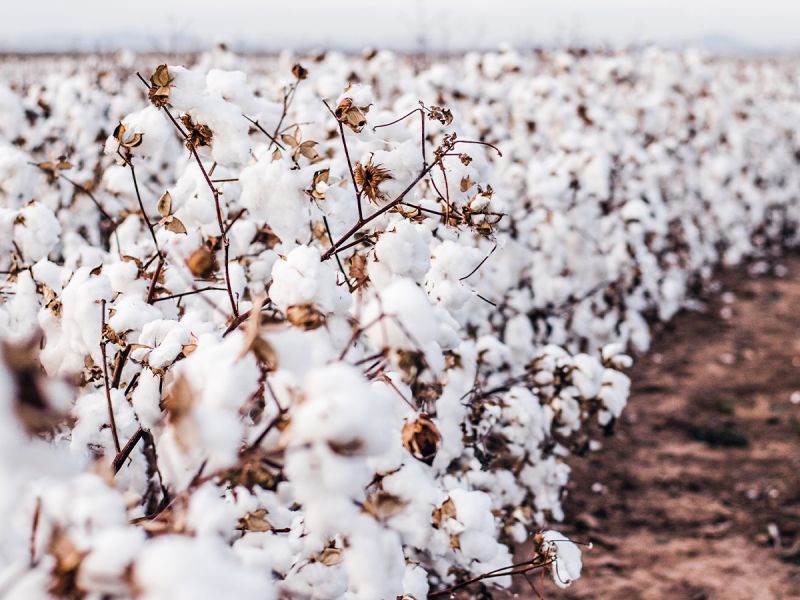
Environmentally friendly properties: Cotton, a natural fibre product, is increasingly recognized as a sustainable material for the manufacture of luggage. Its environmentally friendly cultivation, which promotes reduced use of chemical fertilizers and pesticides, contributes significantly to the protection of ecosystems. As cotton is biodegradable, it is an environmentally friendly alternative to synthetic materials.
Longevity and durability: A key factor for sustainable luggage is durability. Cotton luggage is characterized by high durability, which is further enhanced by advanced weaving techniques and manufacturing processes. This robustness ensures that products last longer, reducing the need for frequent replacement and therefore reducing waste production.
Ethical and social aspects: The cotton industry provides employment and livelihoods for millions of people worldwide. By purchasing luggage made from fair trade and organically grown cotton, consumers not only support environmentally conscious practices, but also promote fair working conditions in the growing regions.
Future prospects: With the growing awareness of environmental issues and sustainability, the demand for ecological materials such as cotton is increasing. The development of eco-efficient cultivation methods and the promotion of organic cotton cultivation could further establish cotton as a sustainable material for luggage and contribute to reducing the ecological footprint of the fashion and luggage industry.
2. hemp
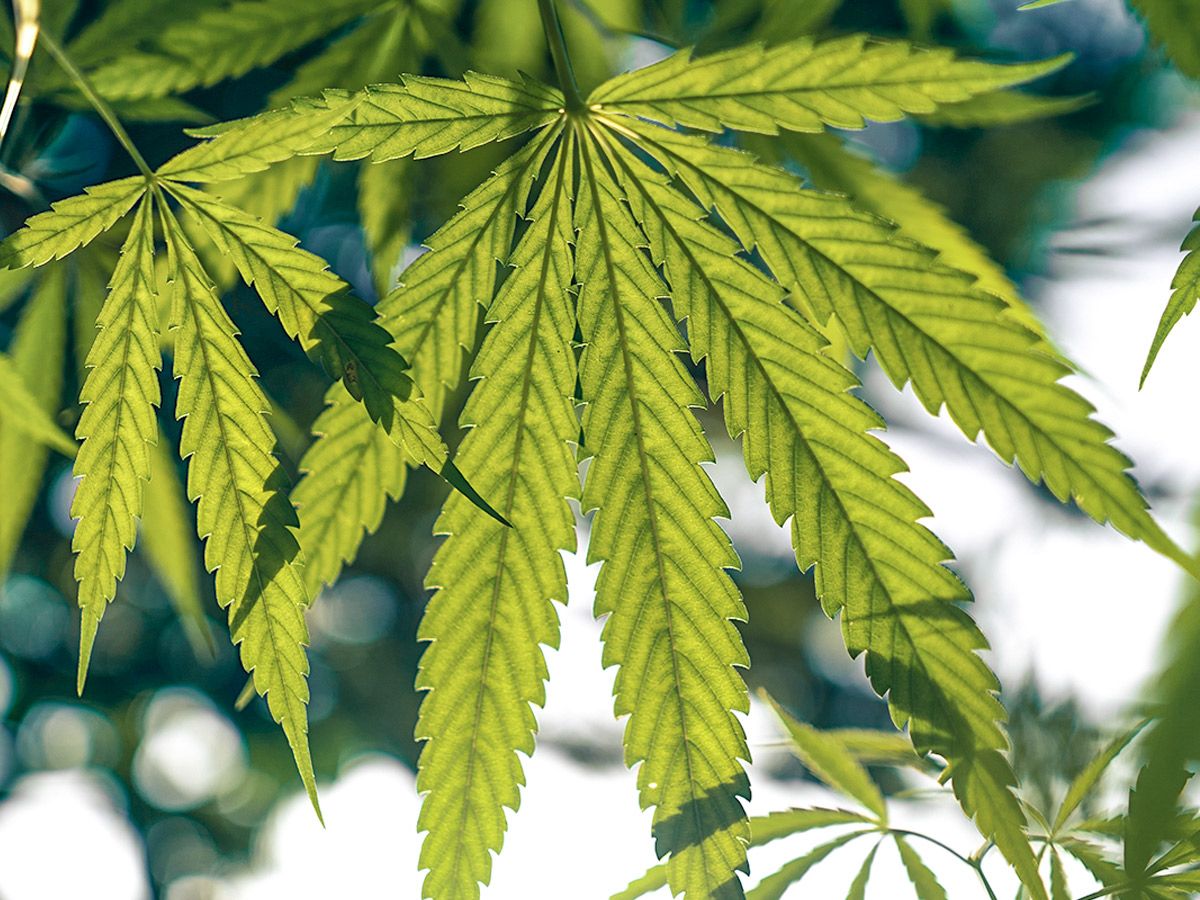
The green wonder material: hemp is an environmentally friendly and sustainable material that is becoming increasingly popular in the luggage industry. This robust material is made from the fibers of the hemp plant, a fast-growing and undemanding plant. Hemp requires little water, requires no pesticides and has a positive balance in terms of CO2 emissions.
Durable and versatile: Luggage made from hemp is characterized by its durability. The fibers are tough and tear-resistant, making them ideal for everyday use. Hemp is also lightweight yet strong, providing comfort and security for travelers. The natural texture of hemp also gives the products an appealing, earthy aesthetic.
Environmentally friendly production: The production of hemp luggage places great emphasis on sustainability. Compared to cotton or synthetic materials, production consumes less energy and water. In addition, the cultivation of hemp is good for the soil, as it returns nutrients and improves soil quality.
Future of the luggage industry: The use of hemp in the luggage industry is a step towards a greener future. With the increasing demand for environmentally friendly products, more and more manufacturers are turning to hemp. This trend shows that sustainability and functionality can go hand in hand. Hemp luggage is not only a fashion statement, but also a contribution to environmental protection.
3. jute
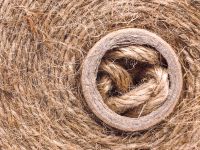
Sustainability of jute: Jute, often referred to as the "golden fiber", is becoming increasingly important as an environmentally friendly material in the luggage industry. This biodegradable and recyclable material comes from the stems of the jute plant, which is mainly grown in South Asian countries such as India and Bangladesh. The production of jute requires comparatively less water than cotton and does not require the use of harmful pesticides.
Robustness and versatility: Jute is not only sustainable, but also ideal for luggage due to its robustness and durability. The fibers are strong and resilient, making them perfect for making travel bags, backpacks and other types of luggage. Their natural structure provides an interesting aesthetic and makes each piece unique.
Eco-friendly choice: Choosing jute for luggage is a step towards sustainable consumption. By buying jute products, consumers not only support the environment, but also the economy in the regions where they are grown. Jute as a sustainable alternative to synthetic materials reduces dependence on fossil fuels and promotes the use of renewable resources.
Future prospects: In view of the growing environmental awareness, the demand for products made of jute is increasing. Future innovations could further improve the properties of jute to make it even more versatile for different styles of luggage. Jute thus sets an important trend for the future of the luggage industry and shows how sustainability and functionality can go hand in hand.
4. linen
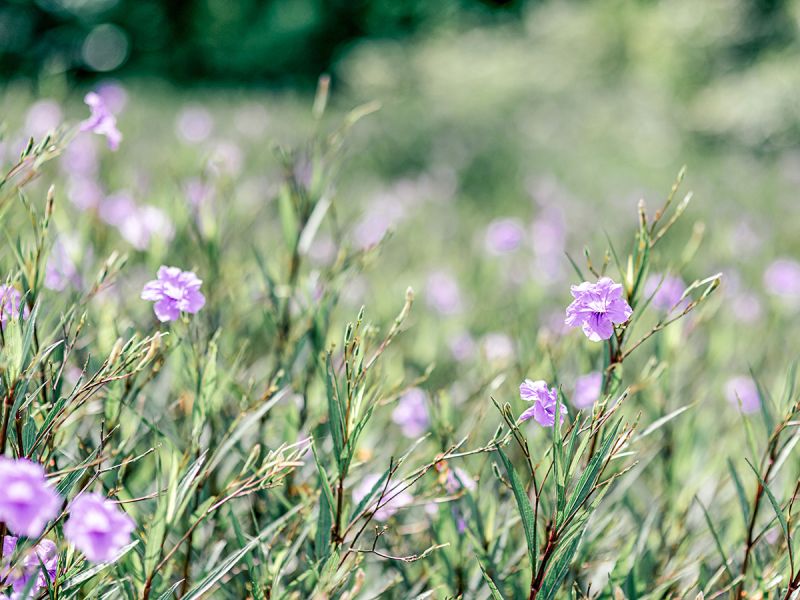
Sustainability of linen: Linen, obtained from flax fibers, stands for sustainability. Its production requires less water and pesticides compared to cotton. This significantly reduces the environmental impact. In addition, flax is robust and also thrives in less fertile soils, which optimizes land use.
Durability and functionality: Linen is known for its durability. It resists wear and tear and retains its shape for years. This property makes linen ideal for luggage. It is not only robust, but also lightweight, which increases comfort when traveling. Its natural resistance to dirt and bacteria makes it a hygienic material.
Aesthetics and versatility: Linen has a unique texture and natural sheen. It offers a stylish aesthetic that improves with time. Its versatility allows it to be implemented in different designs and colors, so there is something for everyone.
Eco-friendly alternative: Choosing linen as a material for luggage is a step towards a more environmentally friendly future. Its biodegradability and recyclability underline the commitment to responsible consumption. Linen shows that style and sustainability can go hand in hand.
5. ocean bound plastic

Ocean Bound Plastic: The use of Ocean Bound Plastic (OBP) in the luggage industry represents a significant step forward in environmental protection. This material is derived from plastic waste that is collected near the coast before it can enter our oceans.
Environmentally friendly and practical: OBP is not only environmentally friendly, but also extremely practical. Luggage made from this material is robust, lightweight and water-repellent, making it ideal for traveling. The processing of OBP into high-quality suitcases and bags demonstrates how waste products can be converted into valuable resources.
Sustainable future: The use of OBP in luggage manufacturing is an important step towards a more sustainable future. It shows how industries can have a positive impact on the environment through innovative approaches. The integration of OBP into everyday products such as luggage raises awareness of the importance of environmental protection and promotes sustainable consumption habits.
Conclusion: The introduction of Ocean Bound Plastic in the luggage industry is an exemplary example of how sustainability and functionality can go hand in hand. It opens the door for more innovative solutions to protect our planet while creating practical, long-lasting products.
6. ocean plastic
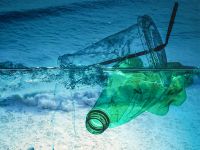
The challenge: Millions of tons of plastic are floating in our oceans. This environmental problem has serious consequences for marine ecosystems and threatens biodiversity. But there is also an opportunity hidden in this crisis.
Upcycling marine plastic: Advanced technologies now make it possible to collect and recycle this plastic. Special cleaning and processing methods are used to transform marine plastic into high-quality materials.
Sustainability meets design: One inspiring application of this recycled plastic is the production of luggage. Suitcases and bags made from ocean plastic combine functionality with environmentally conscious design. They are not only robust and durable, but also make an active contribution to environmental protection.
The future - a positive cycle: The use of ocean plastic for luggage not only promotes the clean-up of the oceans, but also raises public awareness of the problem of plastic waste. This creates a virtuous cycle that both protects the environment and promotes sustainable innovation.
more information about Ocean Plastic
Discover our sustainable suitcases or a selection of sustainable backpacks.
7. recycled PET
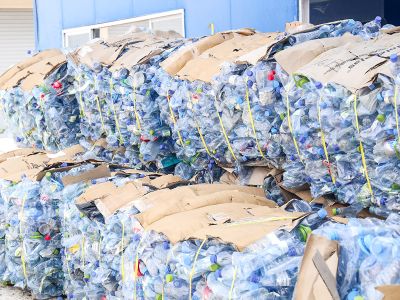
Sustainability and environmental friendliness: Recycled polyethylene terephthalate (PET) is becoming increasingly important in the luggage industry. This material, which is obtained from recycled plastic bottles, offers an environmentally friendly alternative to conventional luggage materials. Recycling PET bottles not only reduces plastic waste, but also reduces the CO2 footprint.
Robustness and durability: Despite its sustainability, recycled PET is in no way inferior to new materials in terms of quality and durability. It is characterized by high tear and abrasion resistance, which makes it ideal for luggage. Recycled PET retains its shape and color for years and withstands the rigors of travel.
Versatility and design: Recycled PET offers a variety of design options. Manufacturers can choose from a wide range of colors and textures to create stylish and appealing luggage. In addition, the flexibility of the material allows for innovative designs that are both functional and aesthetically pleasing.
Future prospects: The use of recycled PET in the luggage sector is an important step towards a more sustainable future. This development not only promotes awareness of recycling, but also sets new standards in product development. Recycled PET is an example of how industry and environmental protection can go hand in hand.
8. vegetable tanned leather
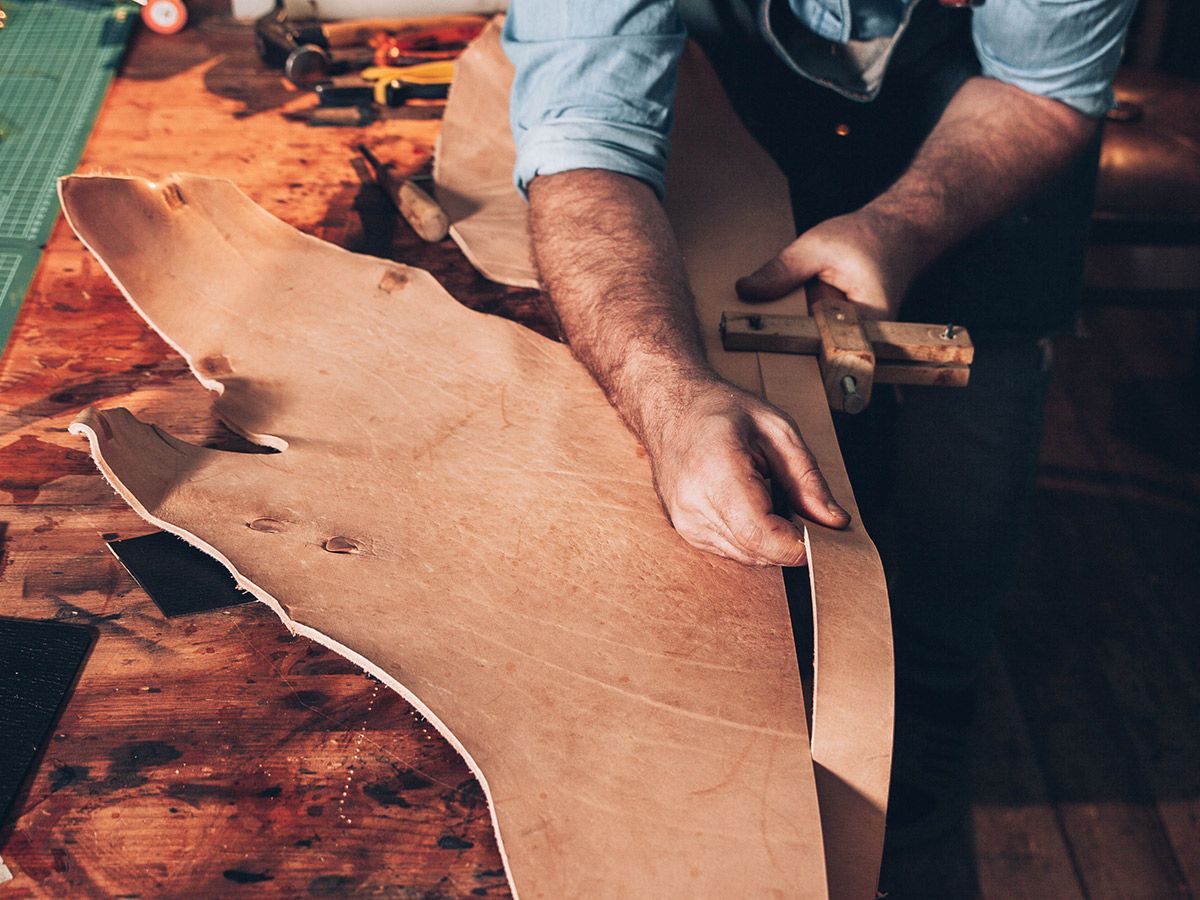
Environmentally friendly process: Vegetable tanned leather is an environmentally friendly alternative in leather production. The tanning process uses natural tannins from plants, avoiding harmful chemicals. This method is not only better for the environment, but also for the workers in the leather industry.
Durability and aesthetics: A major advantage of vegetable-tanned leather is its durability. Unlike chemically treated leather, it ages in a way that improves its aesthetics over the years. This characteristic makes it ideal for high-quality luggage.
Biodegradability: Since no harmful chemicals are used, vegetable-tanned leather is biodegradable. At the end of its life cycle, it can be broken down without any negative impact on the environment, which is another sustainable aspect.
Sustainable luggage options: Luggage made from vegetable-tanned leather not only offers an eco-friendly option, but also a stylish and durable one. It appeals to environmentally conscious consumers who value quality and sustainability.
9. vegan leather
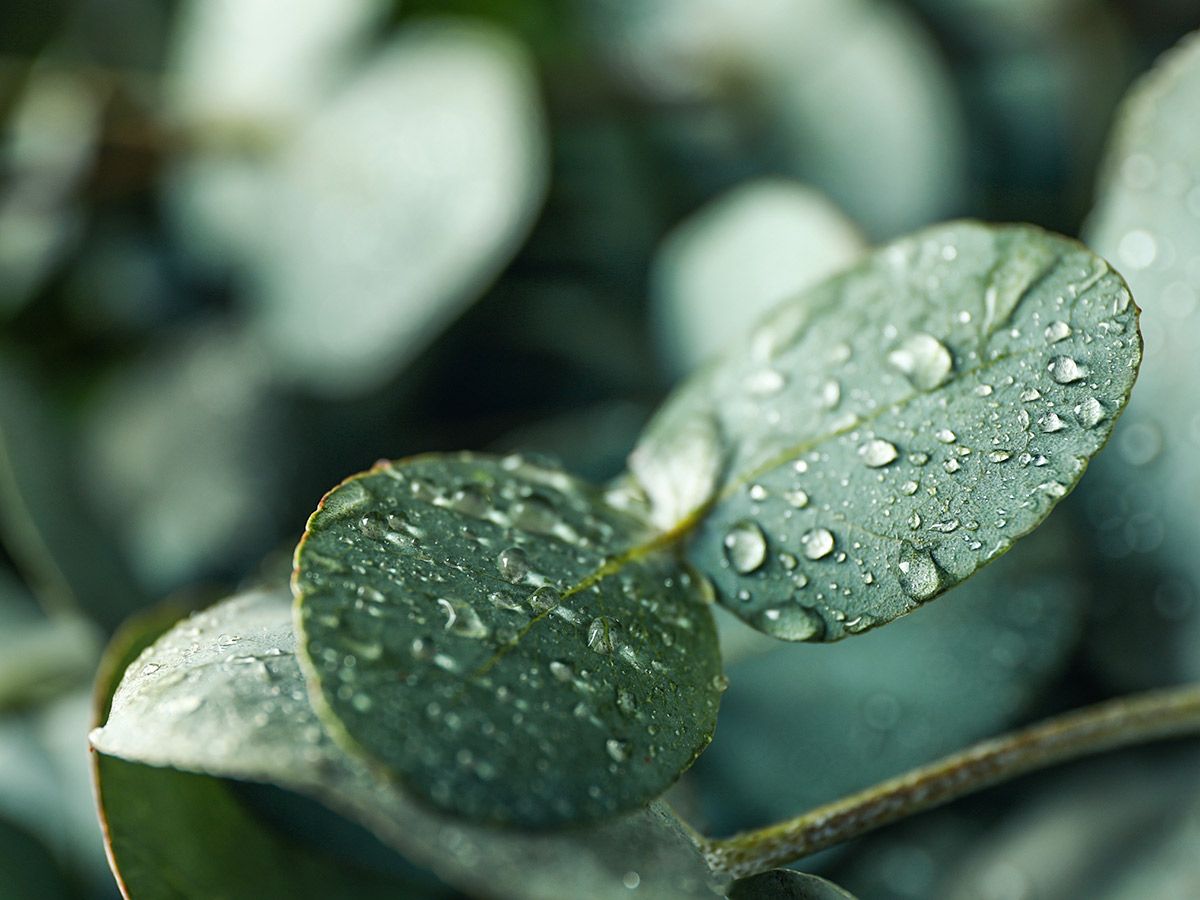
A sustainable alternative : A remarkable change is taking place in the world of fashion and luggage: vegan leather is increasingly coming to the fore as a sustainable alternative. This innovative material, made without animal products, offers an environmentally friendly solution for conscious consumers.
Eco-friendly production: Vegan leather is made from a variety of materials such as pineapple leaves, cork, apple fibers or recycled plastic. These processes are often less resource-intensive than traditional leather production and significantly reduce the environmental impact. In addition, avoiding animal products protects wildlife and promotes ethical standards.
Durability and style: A common misconception is that vegan leather is less durable than animal leather. However, modern manufacturing processes have meant that vegan leather is not only durable, but also available in a variety of styles and textures. It therefore offers a fashionable and practical solution for luggage and accessories.
Suitable products for your next trip
You may also be interested in these topics and travel destinations:
Credit card cases - koffer24 on Instagram - Cabin luggage from travel ite
Hard shell suitcases from travelite - Hard luggage suitcases from Stratic - Stratic Straw Collection
aporti roll tops made from recycled plastic - suitcases from Samsonite


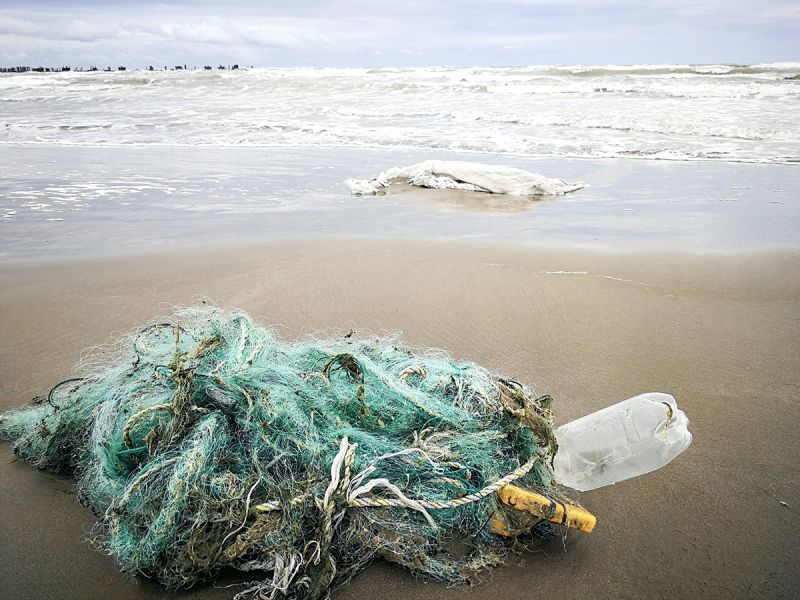



![- Black [11] - Black [11]](https://cdn.koffer24.de/thumbnail/68/86/5d/1715761426/1052055_1_50x50.jpeg)


_1000x1000.jpg)
![Leather&More - Hard shell suitcase M (up to 66cm) - rose - blue [36] Leather&More - Hard shell suitcase M (up to 66cm) - rose - blue [36]](https://cdn.koffer24.de/thumbnail/18/6c/6f/1628014080/leatherandmore-blue-M-front_800x800.png)







![Straw + America Unlimited Canada Edition - Hard suitcase L (75 cm) - Black - pastel blue [65] Straw + America Unlimited Canada Edition - Hard suitcase L (75 cm) - Black - pastel blue [65]](https://cdn.koffer24.de/thumbnail/91/ac/78/1702623505/1050969_4001807906300_STRAWplus_L_pastelblue1_800x800.jpg)




![- Black [11] - Black [11]](https://cdn.koffer24.de/thumbnail/23/b0/91/1715761116/1052042_1_50x50.jpeg)
![- champagne [86] - champagne [86]](https://cdn.koffer24.de/thumbnail/2b/30/f4/1715761162/1052044_1_50x50.jpeg)

![- champagne [86] - champagne [86]](https://cdn.koffer24.de/thumbnail/de/e7/2c/1715761281/1052049_1_50x50.jpeg)
![- Silver [23] - Silver [23]](https://cdn.koffer24.de/thumbnail/9a/a1/38/1715761304/1052050_1_50x50.jpeg)

![Bendigo Light + - Suitcase M - Silver - eggplant [91] Bendigo Light + - Suitcase M - Silver - eggplant [91]](https://cdn.koffer24.de/thumbnail/12/f5/9d/1702623251/1050957_4001807906829_BLplus_M_aubergine1_50x50.jpg)






